Pope John Paul II letters raise debate about celibacy
- Published
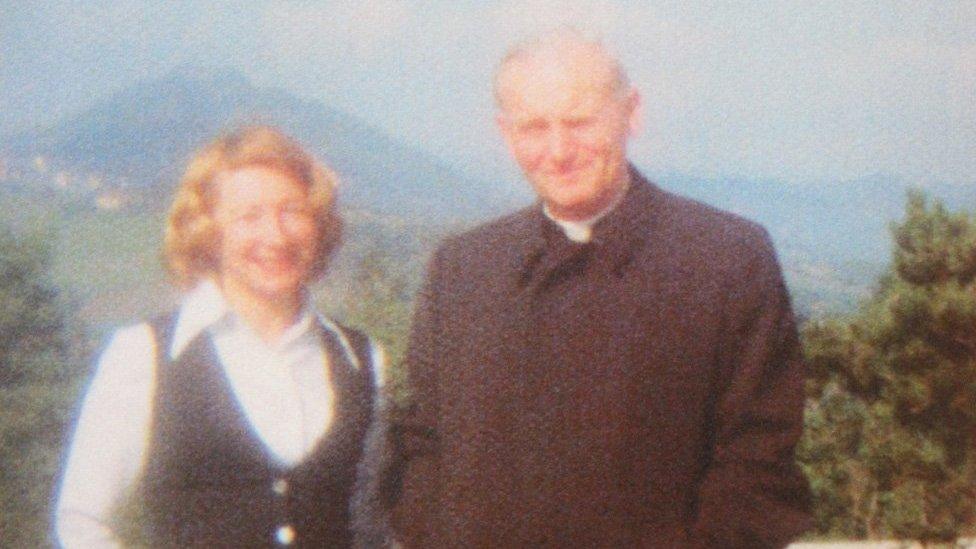
Anna-Teresa Tymieniecka and Cardinal Karol Wojtyla in 1977
Emotionally charged letters sent by Pope John Paul II to a married woman have shed new light on the pontiff's personal life and raised questions about the meaning of celibacy.
His relationship with Polish-born American philosopher Anna-Teresa Tymieniecka lasted more than 30 years, and researchers believe Ms Tymieniecka fell in love with the future Pope, Cardinal Karol Wojtyla, in the early days of their friendship.
There is no suggestion Pope John Paul broke the vow of celibacy taken by Catholic priests and bishops.
Indeed some observers dismissed any misgivings, hailing the relationship as a sign of the Pope's humanity and warm rapport with women.
"I would not be the slightest bit disturbed," Prof Breda Ennis, a lecturer at the American University of Rome, told BBC Radio 5 live.
"He was a very intense person... a passionate kind of individual. It doesn't surprise me that he would have this kind of relationship, but I would never see anything beyond [that]."
However, others have cast doubt on whether the relationship could have really been platonic - and asked whether it was appropriate for the leader of the worldwide Roman Catholic Church.
'I belong to you'
"I think there are some serious questions about the relationship," says religious affairs commentator Clifford Longley.
"My first reaction is, seeing it from her husband's point of view, I certainly wouldn't be relaxed about the whole thing.
"My impression was that she was in love with [the Pope]. That should have been a warning for him to back off, but it does not appear that he did."
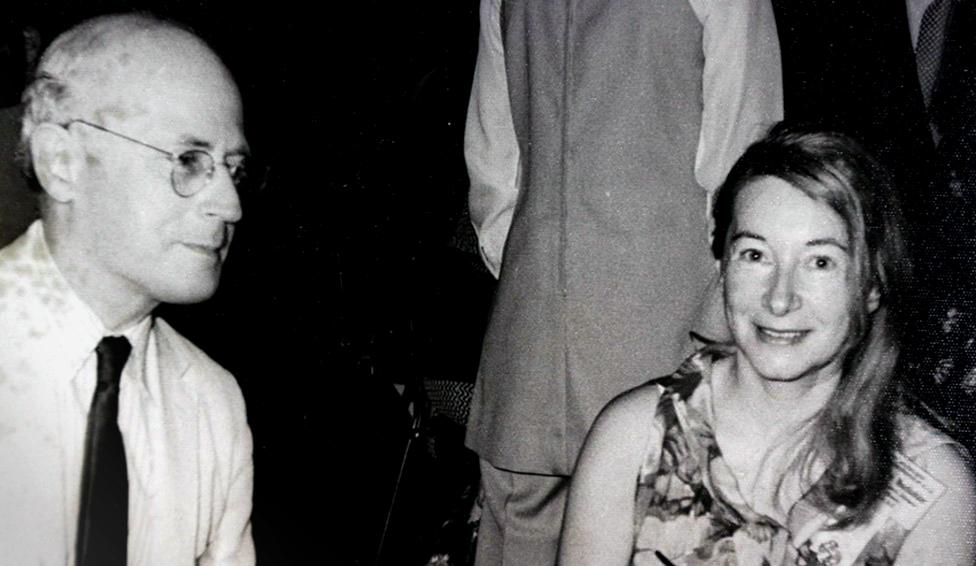
Anna-Teresa Tymieniecka with her husband Hendrik Houthakker
When a single man takes Holy Orders to become a priest, he relinquishes the right to marry in order to devote himself completely to God and the Church.
"True" celibacy means a life with neither sex nor a spouse or partner.
However, celibacy is not strictly only about not engaging in sexual encounters, Clifford Longley says.
Hurt and disruption can be caused as much by an emotional relationship as a physical one, he adds.

Find out more
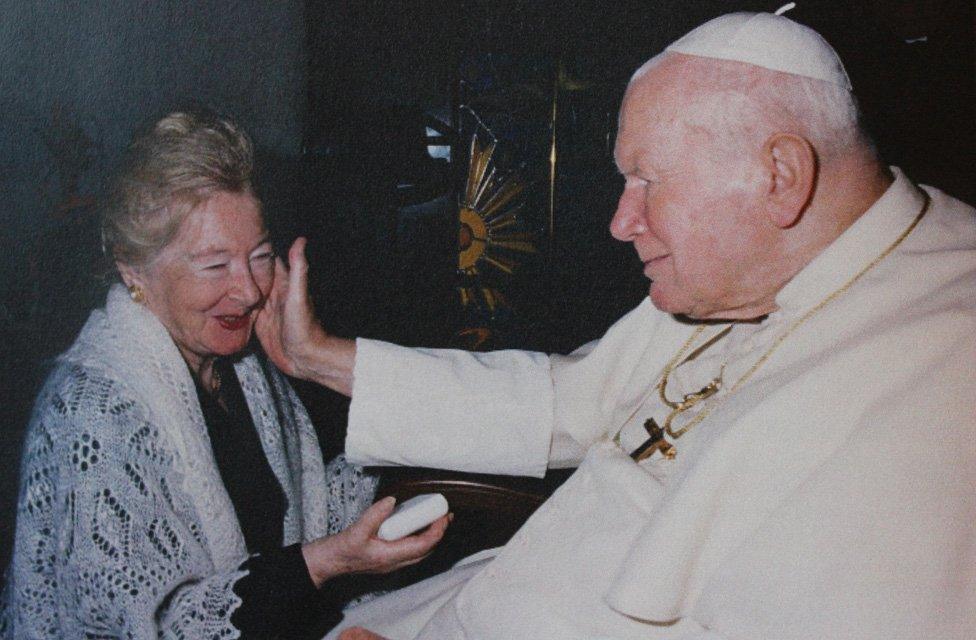
The Pope at the Vatican with Anna-Teresa Tymieniecka
In the UK, you can watch Ed Stourton's Panorama report: The Secret Letters of Pope John Paul II on BBC One on Monday 15 February at 20:30, and you can catch up via the iPlayer.
And read the full story of Pope John Paul II and Anna-Teresa Tymieniecka

For some Catholic leaders and commentators, the story will be another example of the need for the current rule mandating priestly celibacy to change.
Celibacy is a discipline not a doctrine or dogma - religious beliefs or principles - so the Church is free to alter that practice if or when it believes this is necessary.
Jesus' surviving words in the Gospels include very little about sex, and the shift towards celibacy within Christian practice came later, in part because of remarks in Paul's First Letter to the Corinthians. It was re-affirmed from the Second Century as some men and women began living celibate lives as monks and nuns.
Since the 11th Century, the Roman Catholic Church has required priests to remain celibate, while other churches, including the Eastern Orthodox churches, have permitted married men to be ordained.
But some Catholic leaders and commentators have called for a rethink. Former priests have said it is not just the physical aspect of remaining celibate that they struggled with, but the loneliness.


Last year Pope Francis was reported as saying celibacy is "a gift for the Church, but since it is not a dogma, the door is always open," and that the issue of married priests is in his "diary".
It has been suggested he is open to the idea of married men being ordained priests amid a lack of new recruits.
His predecessor, Pope Benedict XVI, created an exemption from the celibacy rule for married Anglican priests, unhappy at the Anglican Communion's ordaining of women, converting to Catholicism.
Pope John Paul II meanwhile dedicated much of his writing to the importance of celibacy, in particular focusing on the idea of being married to the church., external
His letters to Ms Tymieniecka do not reveal any transgressions that would have been an obstacle to his canonisation in 2014.
What they do show is a relationship of warmth and friendship that he valued for many years.
- Published15 February 2016
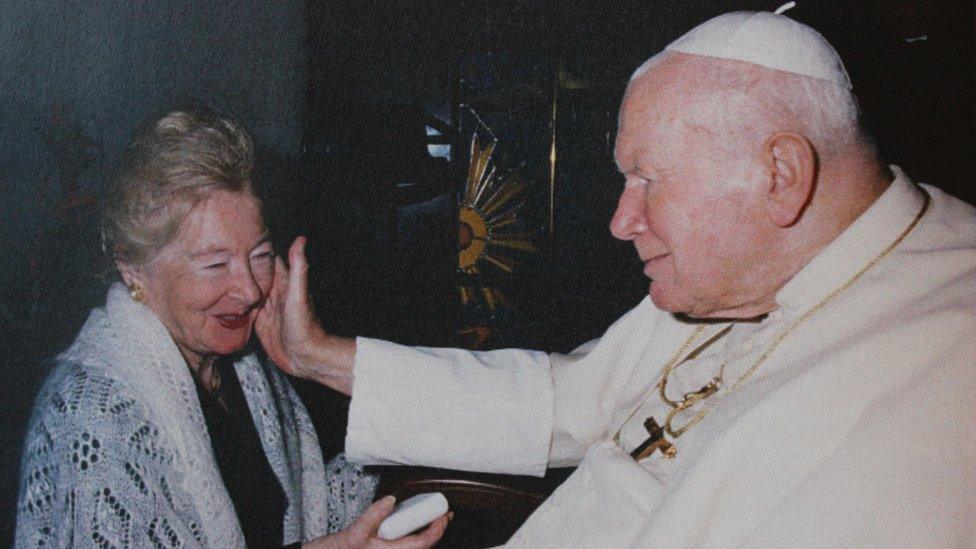
- Published15 February 2016

- Published15 February 2016
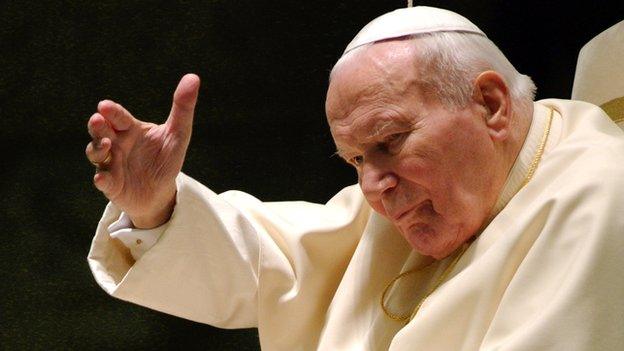
- Published5 March 2013

- Published27 April 2014
